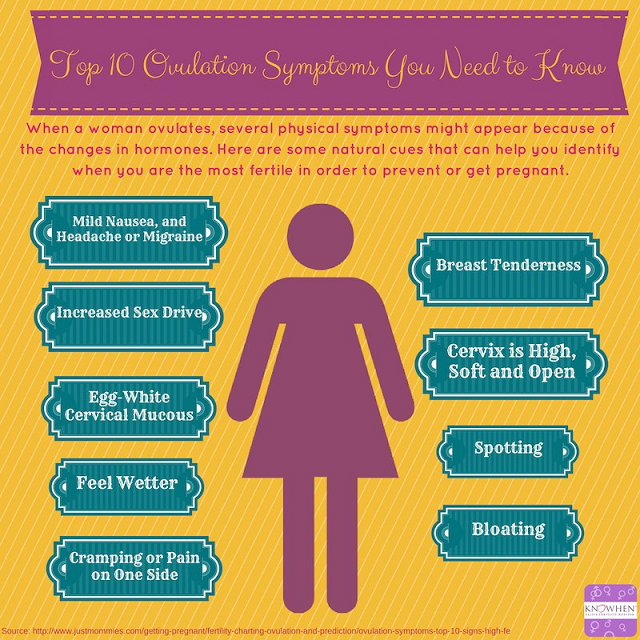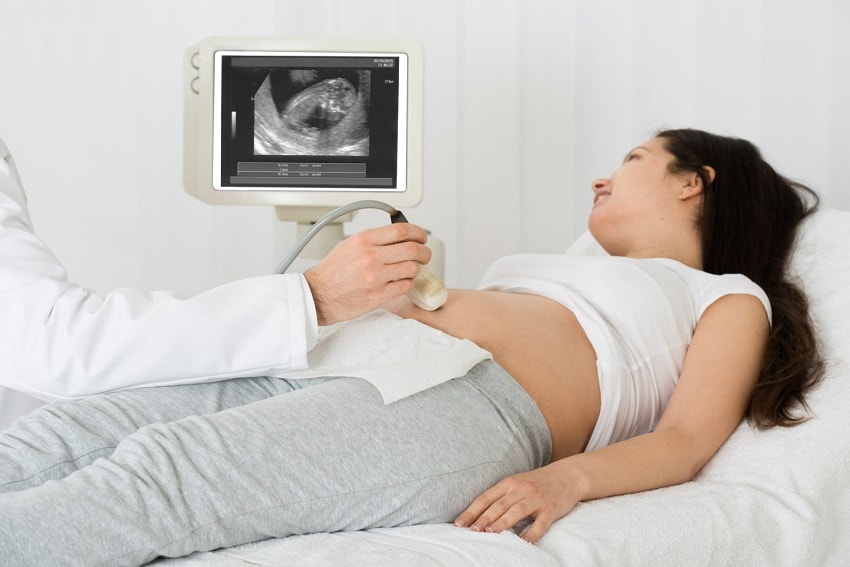First signs a woman is pregnant
16 early signs of pregnancy
You’ve got one question on your mind: Could I be pregnant?
A pregnancy test is the only way to know for sure. But if it’s too early to take a test, you may be on the lookout for early signs – or maybe you think you’re already experiencing some early pregnancy symptoms.
Is it too early to tell if you’re pregnant? What symptoms may be the earliest signs of pregnancy? Below, we answer those questions and more.
How early can you tell if you’re pregnant?
Again, you’ll need to take a pregnancy test at the right time to confirm your hopes or suspicions. But when it comes to the first symptoms of pregnancy, everyone is different. Some people start to notice changes within a week after conception. Others might not notice anything until they miss their period.
When should you take a pregnancy test?
It’s usually recommended that you take a pregnancy test after you’ve missed your period. This is because pregnancy tests measure the level of human chorionic gonadotrophin (hCG) in your body, which is a hormone that starts to build up when you conceive. It can take around three to four weeks from the first day of your last period for there to be enough hCG in your body to show up on a test.
What are the first symptoms of pregnancy?
The most common sign of early pregnancy? A missed period.
Your menstrual cycle is your body’s way of preparing for a possible pregnancy each month. Part of that is the thickening of your uterine lining, which is where a fertilized egg would implant to begin a pregnancy.
If you’re not pregnant, your period is how your uterus sheds that extra lining. If you are pregnant, that lining stays put and you don’t get your normal flow. This is why a missed period is often the earliest sign of pregnancy.
Of course, a delayed or missed period doesn’t always mean you’re pregnant. If your body is under a lot of stress or you have a hormonal imbalance, you could be experiencing an irregular menstrual cycle.
What other symptoms can be early signs of pregnancy?
Every person – and every pregnancy – is different. So, if you are pregnant, you’ll likely experience a unique combination of common, not-so-common and sometimes overlapping symptoms. And, they may show up earlier or later than expected. Here are more than a dozen possible symptoms of early pregnancy.
So, if you are pregnant, you’ll likely experience a unique combination of common, not-so-common and sometimes overlapping symptoms. And, they may show up earlier or later than expected. Here are more than a dozen possible symptoms of early pregnancy.
1. Spotting or light bleeding
Many women are surprised to learn that spotting or light bleeding can be an early sign of pregnancy, but about one-third of women experience it. This is often called implantation bleeding because doctors believe it occurs as the fertilized egg attaches (or implants) itself into the uterine lining. This is different from bleeding that could occur from something like a miscarriage – which is usually heavier.
When does implantation bleeding occur?
Implantation bleeding typically occurs 10 to 14 days after conception, which is just before or right around the time your period is due. So, you may think you’ve gotten your period.
But implantation bleeding is a light flow, which may start and stop over a couple days.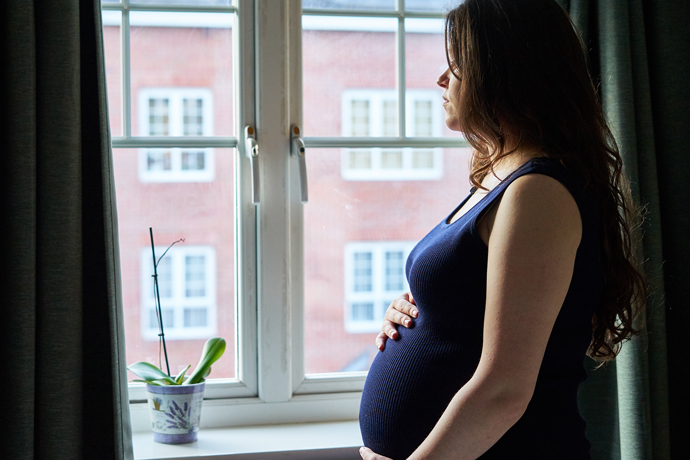 And while it can take on a range of colors, it’s more likely to be pink, brown or light red.
And while it can take on a range of colors, it’s more likely to be pink, brown or light red.
Your period, on the other hand, may start off light in flow and in color but after a couple days becomes heavier, changes to a crimson red color and lasts up to a week or so.
2. Lower abdominal pain or cramping
While cramps and lower-abdominal pain can signal a coming period, they can also be a sign of egg implantation.
What do implantation cramps feel like?
Implantation cramps can occur with or without spotting or bleeding, and may feel different from period cramps. For example, you might feel mild to moderate prickling, pulling or tingling that comes and goes over a few days.
But menstrual cramps can often feel like a throbbing or dull ache, and typically start a day or two before your period.
3. Higher basal body temperature
If you’ve been tracking your basal body temperature (BBT) to increase your chances of getting pregnant, you probably know that your BBT goes up slightly right after ovulation. If you’re pregnant, your temperature may remain elevated rather than dipping back down.
If you’re pregnant, your temperature may remain elevated rather than dipping back down.
Of course, you could be running hot for other reasons, but if it lasts more than a few weeks, pregnancy may be the explanation.
4. Changes in cervical mucus
If you’ve already been checking your cervical mucus to figure out when you’re most fertile, here’s a reason to continue: In the first few weeks of pregnancy, the amount of cervical discharge may increase and become stickier and whiter.
5. Breast tenderness, swelling or tingling
When you’re pregnant, your body experiences big changes in hormones – specifically, increases in estrogen and progesterone – to support your growing baby. This change in hormones can contribute to many symptoms, including breast tenderness.
Oftentimes, increased breast tenderness, swelling or tingling start to become noticeable a few days before a missed period.
If you usually experience breast tenderness leading up to your period or shortly after it begins, pregnancy-related breast tenderness and swelling will likely be more intense than you’re used to and stick around. You may also experience nipple soreness.
You may also experience nipple soreness.
6. Fatigue
Fatigue in early pregnancy is common, and some women might notice it before they know they’re pregnant. In fact, fatigue may set in as soon as one week after conception. This is thanks to those sudden changes in hormone levels, particularly increasing progesterone.
7. Frequent urination
If you’re making more trips to the bathroom than usual around the time your next period is due, it may be a sign of pregnancy.
Certainly, your drinking habits play a big role in how many times you pee in a day. However, pregnancy increases the amount of blood in your body, which gives your kidneys more fluid to filter and more waste to get rid of.
So if you’re pregnant, you may notice you’re peeing a lot more – a symptom that can start early on and (unfortunately) last throughout your pregnancy.
8. Nausea or vomiting
Morning sickness might be the most well-known of all pregnancy symptoms, taking the form of food aversion or nausea, and even vomiting for some. This symptom can set in as early as two weeks after conception, which is around the fourth week of pregnancy and right around the time you’d miss your period if you were pregnant.
This symptom can set in as early as two weeks after conception, which is around the fourth week of pregnancy and right around the time you’d miss your period if you were pregnant.
But some may not experience nausea or vomiting at all. And despite its name, morning sickness can actually happen at any time of the day or night.
9. Darkening areolas
When you’re pregnant, your areolas (the areas round your nipples) will likely grow and darken. Usually, these changes are gradual and continue throughout pregnancy. However, some women notice these changes really early on in combination with other symptoms.
10. Bloating or constipation
We all experience bloating or constipation from time to time, but both are quite common during pregnancy. Once again, those changing hormones are the culprit. They slow down digestion, which can cause a buildup of air in the gut and lead to constipation.
Early on, bloating or constipation may be mild and accompanied with other pregnancy symptoms. But – as a heads up – if you really are pregnant, these symptoms may stick around throughout your whole pregnancy.
But – as a heads up – if you really are pregnant, these symptoms may stick around throughout your whole pregnancy.
11. Metallic taste in your mouth
Many women report a metallic taste in their mouth during pregnancy. Once again, hormones are to blame – specifically, estrogen.
Typically, this symptom (as well as changes in taste overall) is common in the first trimester but may occur at other times too – including before a missed period.
12. Sensitivity to smell
Many women report that sensitivity to smell was one of their first signs of pregnancy. In fact, as many as two-thirds of women become more sensitive or reactive to the smells around them during pregnancy.
And oftentimes, this heightened sense of smell can stick around through the first trimester or beyond, and contribute to other symptoms such as nausea, and food cravings or aversions.
13. Mood changes
From a stressful day at work to the natural wonders of your menstrual cycle, there are a lot of things that can affect your mood. But changes in mood are very common during pregnancy – and they may be especially noticeable early on as your body gets a sudden burst of estrogen and progesterone.
But changes in mood are very common during pregnancy – and they may be especially noticeable early on as your body gets a sudden burst of estrogen and progesterone.
If you are pregnant, any mood changes you’re experiencing are likely coupled with other symptoms such as fatigue or nausea. You may feel more sensitive or weepy. Or perhaps your fuse is a little shorter and you’re more easily annoyed.
14. Headaches
Headaches are a part of life. They come with colds and allergies. They come with stress or fatigue, or when you cut down on caffeine to help prepare your body for pregnancy. But they can also come with pregnancy.
Headaches can happen thanks to the increasing blood volume and hormonal changes that occur in early pregnancy. You can also get headaches if you’re dehydrated as a result of nausea.
15. Dizziness
As blood flow increases during pregnancy, blood pressure can also decrease and lead to dizzy spells. Usually, dizziness is more of a second trimester symptom, but some women may notice it very early on, too.
16. Nasal congestion
A lot of people are shocked to learn that nasal congestion can be a pregnancy symptom. You may wonder if you’re coming down with something or your allergies are acting up. But if you’re noticing a stuffy or runny nose along with other pregnancy signs, you might be taking a pregnancy test in the near future.
The mucous membranes in the nose are also affected by hormones and increased blood flow throughout your body. This can cause blood vessels to swell, resulting in congestion and even sneezing.
Could you have early pregnancy symptoms and not be pregnant?
Yes. As we’ve mentioned, many early pregnancy symptoms can overlap with symptoms of other conditions, especially premenstrual symptoms. So, the best way to know if the symptoms you’re experiencing are pregnancy related is to try to relax and patiently wait until it’s time to take a pregnancy test.
When should you see a doctor about a new pregnancy?
If you’ve taken a pregnancy test and it’s positive, go ahead and make your first prenatal visit right away. This is also a great time to start looking into educational resources like the myHealthyPregnancy app.
This is also a great time to start looking into educational resources like the myHealthyPregnancy app.
At the first prenatal visit, you’ll get a physical exam and other tests to make sure everything is looking healthy, and you’ll learn about the rest of your prenatal appointment schedule. You’ll also get to talk through any expectations and questions you have, such as which foods to eat and avoid while pregnant.
Questions or concerns about your symptoms? Our 24/7 nurse line is free for our members and patients.
Positive pregnancy test? Schedule a visit.
How to increase your chances of getting pregnant
If you’re trying for a baby or thinking about it, you’re probably feeling a lot of excitement and anticipation. And rightly so! But as you may know, getting pregnant isn’t just a matter of having sex.
For starters, timing is everything when it comes to conception. The good news is there are a few things you can do to make sure you’re timing sex just right.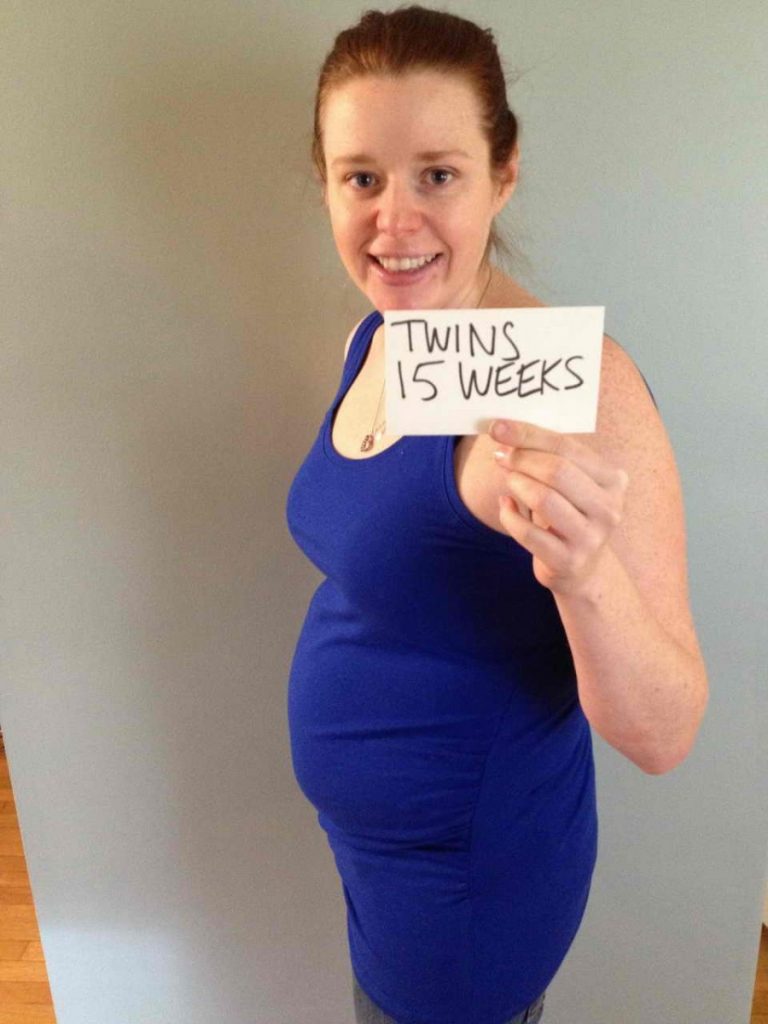 And the even better news is there are additional techniques you can use to further improve your chances of getting pregnant.
And the even better news is there are additional techniques you can use to further improve your chances of getting pregnant.
Whether you’ve been trying to get pregnant for a few months or you’re getting started soon, we’re here to help. Below, we explain what you should know about your odds of getting pregnant, and key tips for increasing them through timing, technique and more.
What are your chances of getting pregnant every month?
Generally, a woman who’s trying to get pregnant has between a 15% and 25% chance of doing so each month. Despite those odds, most couples conceive within the first year of trying.
Whether you will conceive depends on several factors such as your overall health, age, your and your partner’s fertility, and having sex at the right time during your cycle.
Ways to increase chances of getting pregnant
1. Start tracking your menstrual cycle (if you haven’t already)
Each new menstrual cycle is marked by the first day of your period. And tracking your cycle – along with any daily symptoms you’re experiencing – can be incredibly helpful. Why?
And tracking your cycle – along with any daily symptoms you’re experiencing – can be incredibly helpful. Why?
Tracking your cycle helps you get to know your body better, including how long your cycle is. The length of your cycle is what determines your fertile window, which we’ll get to in the next section.
Tracking the symptoms you experience such as changes in sex drive, mood or cervical mucus can help you identify patterns throughout your cycle, including what you typically experience leading up to your most fertile days.
How do you get started? When your next period arrives, start tracking since that is Day 1 of your cycle. You can keep a journal and write things down, or you can use mobile apps such as Fertility Friend and Clue.
2. Identify your fertile window and start tracking ovulation
Your fertile window usually occurs mid-cycle and is when you have the highest chance of getting pregnant. During this window, ovulation – when an egg is released from an ovary – occurs.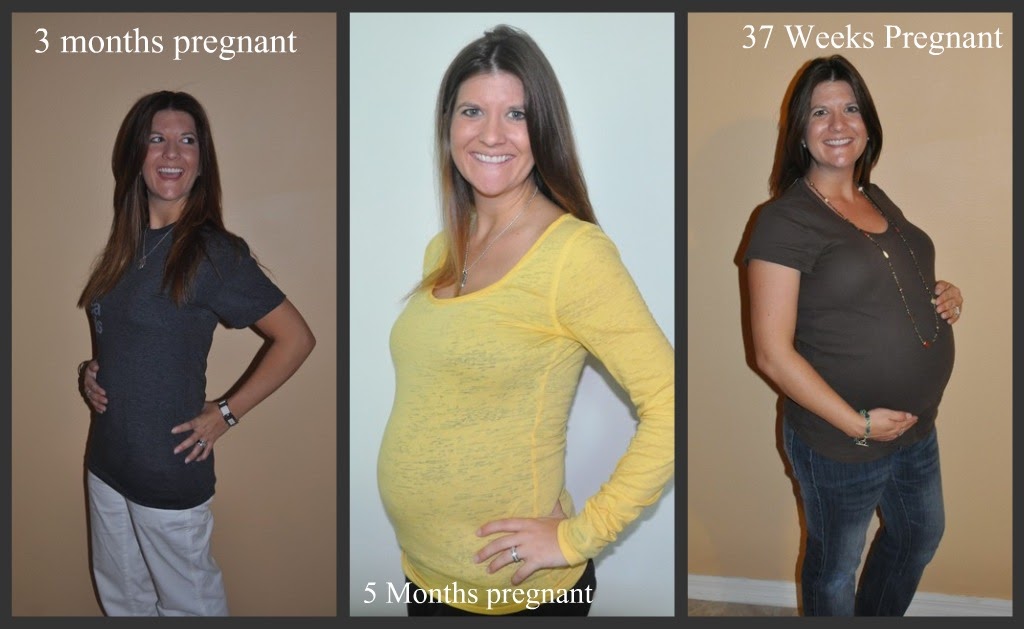 Once this happens, conception (or egg fertilization) is possible.
Once this happens, conception (or egg fertilization) is possible.
Tracking your cycle helps set you up for success by narrowing down your fertile window. But the next step to further improve your chances of getting pregnant is identifying when you’re ovulating. Since conception can’t happen until an egg is released, knowing your ovulation window helps you better time sex.
From monitoring your cervical mucus and basal body temperature, to ovulation predictor kits, there are several methods to help figure out your most fertile days.
Want to know more? Check out our guide to fertility and ovulation.
3. Have frequent sex during your fertile window
One of the most common questions among people trying to conceive is: How often should I have sex if I’m trying to get pregnant?
The short answer is that it depends on your preferences as a couple, and whether there are any known fertility issues.
Overall, studies have shown that couples who have sex every day or every other day during the fertile window have the highest rates of pregnancy.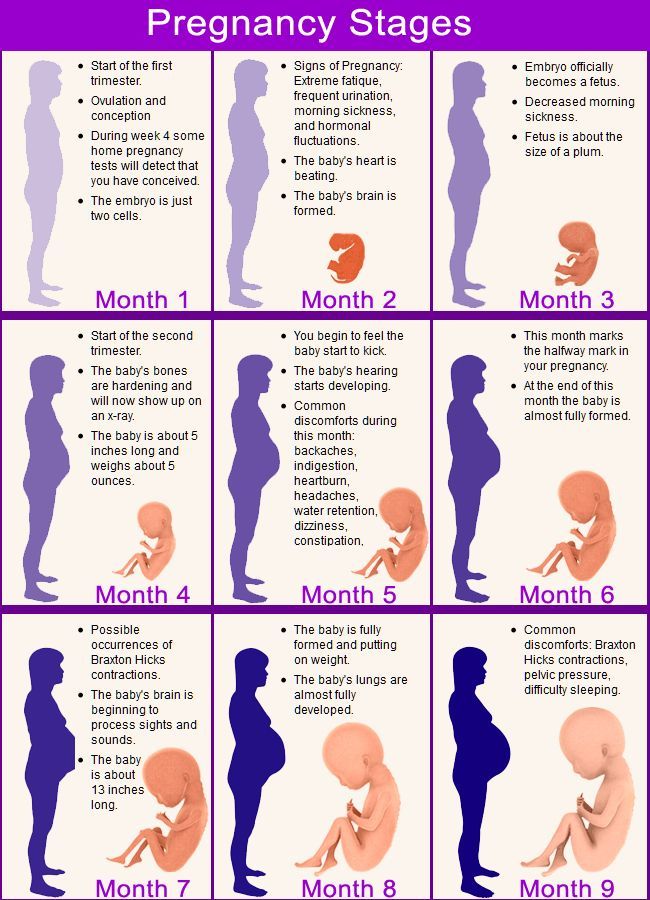 Also, doctors often recommend sticking to just once a day during the fertile window.
Also, doctors often recommend sticking to just once a day during the fertile window.
If having sex every day or every other day isn’t possible or enjoyable, set a goal to have sex throughout your cycle. This can get you and your partner into a regular sex routine, which can carry you into the fertile window.
Is morning or evening sex better when you’re trying to conceive?
Morning may be the best time to have sex for conception, at least as far as sperm are concerned. Some studies have suggested that sperm count and quality are slightly higher early in the morning, which may mean better odds of conception if they’re deposited right after a good night’s sleep.
However, there isn’t a clear medical consensus, so if you and your partner are in the mood, you shouldn’t let the time of day stop you.
Are there certain positions that can increase your chances of getting pregnant?
There’s no scientific evidence to support the idea that a specific position can increase the odds of conception. However, positions that allow for deeper penetration, such as where the male partner is on top, may help deposit sperm closer to the uterus.
However, positions that allow for deeper penetration, such as where the male partner is on top, may help deposit sperm closer to the uterus.
4. Lay down and relax for a few minutes after sex
Standing up or going to the bathroom after sex may pull sperm away from their destination. So, lying on your back for 15 minutes or so after sex may help keep sperm moving in the right direction.
5. Make sure you’re using a fertility-friendly lubricant
The kind of lubricant you use during sex can actually make conception more difficult, so much so that the Food and Drug Administration now categorizes certain lubricants as “fertility friendly”.
This is because the ingredients in many lubricants, such as petroleum, silicone, parabens and glycerin, can harm sperm function. A lubricant’s pH (how acidic or alkaline it is) can also have an effect.
Lubricants to avoid when trying to conceive
- K-Y Jelly
- Astroglide
- Aquagel
Lubricants to consider when trying to conceive
- Pre-Seed
- BioGenesis
- JO Actively Trying
6.
 Strive for a healthy lifestyle for you and your partner
Strive for a healthy lifestyle for you and your partner Getting pregnant isn’t only about timing and technique. Improving your health can help increase your odds of becoming pregnant and set you up for a healthy pregnancy. And that goes for your partner, too.
Changes you’ll benefit from before (and after) you conceive include:
- Taking a prenatal vitamin that’s high in folic acid can help with embryo development and reduce the chance of birth defects.
- As for your partner, they can take a male fertility supplement without testosterone additives. Or they can take a daily multivitamin plus a Coenzyme Q-10 vitamin.
- Making good food choices such as eating a balanced diet of proteins, unsaturated fats and complex carbs, can help make your body an ideal environment for a healthy pregnancy – and may help increase your partner’s sperm production.
- Getting active can reduce stress and condition your body, two things that are helpful for every stage of your pregnancy journey.

- Exercise is important for male fertility, too. But activity should be moderate. Intense exercise, and cycling in particular, may reduce sperm count rather than increase it.
- Men should also avoid exposing their testicles to excessive heat, such as from a hot tub, sauna, steam bath or tight clothing.
- Limiting alcohol consumption before you conceive is important because alcohol can interfere with the first few weeks of pregnancy, when your baby’s organs are developing. Limiting alcohol can also benefit higher sperm production.
- Quitting smoking before pregnancy can positively affect both your odds of conception and the health of your pregnancy. That’s because smoking has been repeatedly linked to a variety of health- and fertility-related issues in both men and women.
- Reducing your stress level may be easier said than done, but it can have a serious payoff. Effectively managing stress can benefit not just your fertility and your pregnancy, but many other aspects of your life as well.
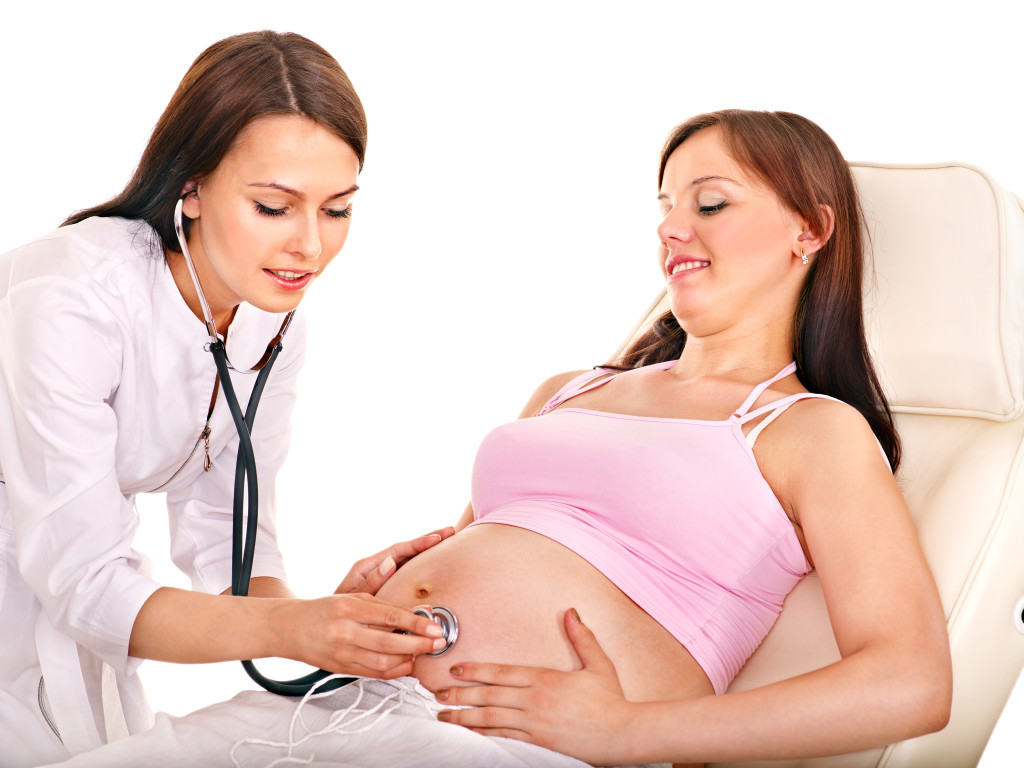
Take a peek at our full preconception checklist to set yourself up for success.
7. Schedule a checkup
Scheduling a preconception checkup with your family doctor, OB-GYN or midwife is an important step. A preconception visit is similar to an annual physical but includes additional care focused on family planning and pregnancy.
In particular, a preconception checkup can help identify any health issues that may affect your chances of conception or having a healthy pregnancy.
Your preconception checkup may include things like a physical exam, and a review of your health and reproductive history such as immunizations you’ve received, past pregnancies and current medications. Blood and imaging tests may also be done. This visit is also an opportunity to voice any questions or concerns you may have.
You and your partner should each schedule appointments for yourselves so that you know everything you can when you start trying to conceive.
Start with almost-baby steps
The more information you have on your side, the more you can increase your chances of conceiving quickly.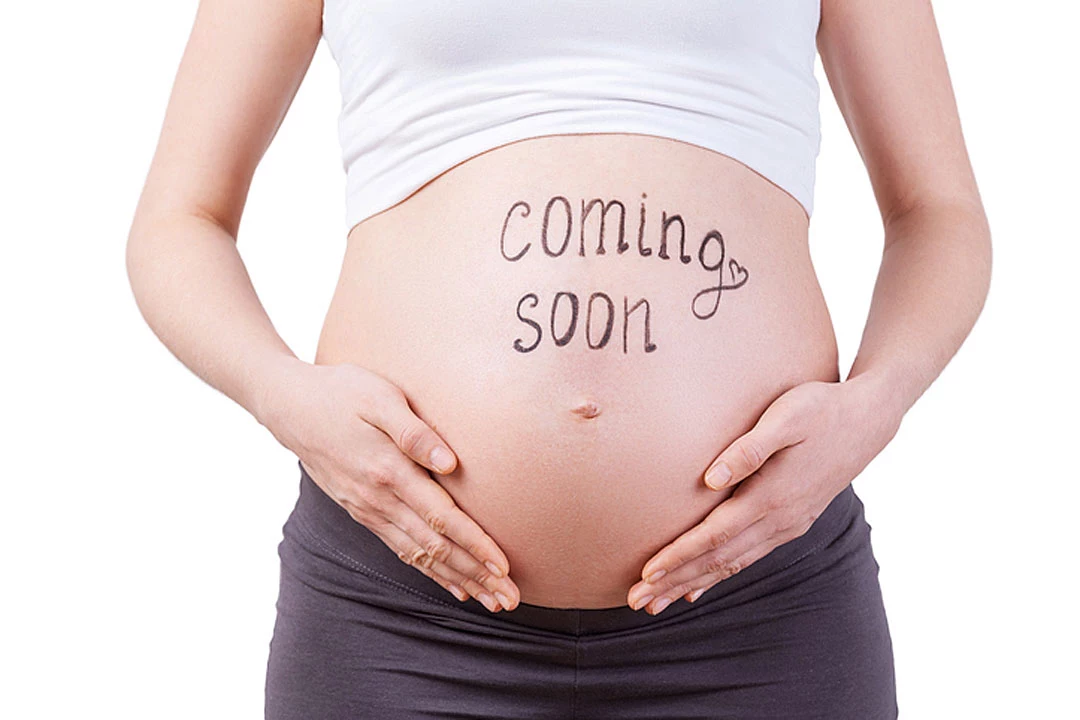
Understanding your cycle and then pinpointing your most fertile days are the big ones for being able to time your baby-making sessions. But don’t forget to use simple techniques and tools like taking it easy for a few minutes after sex and using the right lubricant.
And of course, don’t neglect your health. Beyond taking steps to keep your mind and body healthy, get in for a visit with your doctor or clinician. They will not only check in on your health, but they can also give you tailored advice to help improve your chances of getting pregnant.
First signs of pregnancy before delay
Every woman wants to know about pregnancy as soon as possible. Over the centuries, many observations have been accumulated to test the emergence of new life at an early stage. Signs of pregnancy before a delay are mainly associated with changes in the emotional state. In other words, as a result of the analysis, it can be concluded that children will be born in the near future.
Change in how you feel
When you start your pregnancy, you may feel a little tired almost immediately. The minimum load causes fatigue for no reason, and performance decreases. This is because the restoration of the woman's body begins.
In the first few days when a new life is born, there is often an increase in body temperature, so a cautious woman who wants to get pregnant will always pay attention to this factor. Especially when a runny nose, sore throat or cough overlaps, it can be judged as a cold. Such symptoms indicate that restructuring has begun and immunity is decreasing. The illusion of cold lasts for several days and can be cured, indicating that the body is "adapted" to the new situation.
Changes in sensation and perception
The initial symptoms of pregnancy before menstruation are always associated with a certain sensation and change in perception. In most cases, in the first few days after treatment, women notice that breast tenderness increases. I feel pain even if I lightly touch.
I feel pain even if I lightly touch.
As the breast grows, it feels swollen.
The skin around the nipple may also change. Darkness is noticeable, and sometimes fluid comes out of the nipple. These symptoms show the preparation of the body for future breastfeeding. However, such changes are not necessary, and the condition of the breast does not change during the long period of pregnancy.
In fact, after pregnancy, women have observed how they hate certain fragrances. I can't overlook this because I'm disgusted by the smell, which hasn't had a negative reaction so far. Most of the time you smell fry meat and fish, you feel unpleasant. In early pregnancy, you may feel disgusted by the drop in your favorite fragrance. These symptoms may indicate early poisoning, which will bring many problems in the near future.
In addition, the taste may change before you are late. For example, you can eat something incompatible or try something that you cannot eat. During the weeks of early pregnancy, you may not have an appetite or feel hungry all the time.
Physiological signs
You may be called before your period is delayed. This should increase the amount of female hormones. As a result, the work of the kidneys changes. In addition, the uterus after the transformation grows a little and compresses the bladder. Of course, this symptom is more noticeable in late pregnancy.
Immediately after the hypothesis, the amount of progesterone secretion increases. This hormone will delay the discharge of salt and moisture in the body. The result is swelling of the legs and arms, but this is hardly seen during early pregnancy.
In the early days, you may feel a heavy large part of the abdomen and mild pain. Similar to pre-menstrual syndrome and does not give serious discomfort. This is because when the fetus sticks to the uterus, the circulation in the pelvis improves.
It is important to understand that unexpected severe pain is a possibility of an ectopic pregnancy and a sign of a natural miscarriage. It is dangerous and needs urgent medical attention.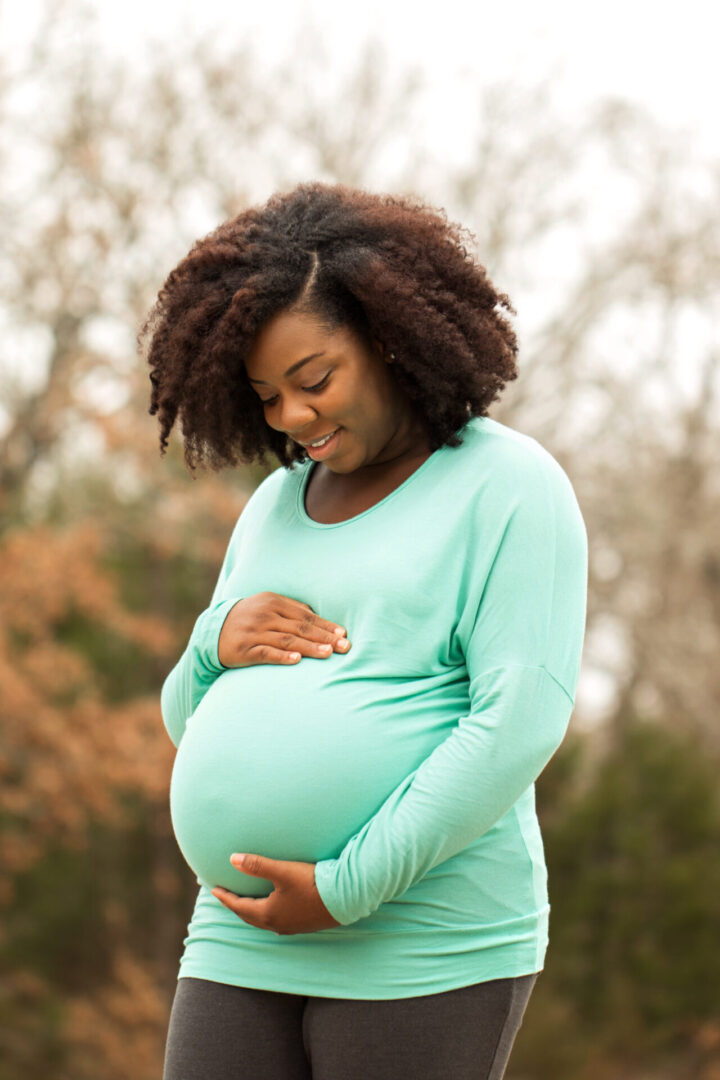
Psychological changes
Symptoms and delays during pregnancy are often accompanied by psychological changes. First, there is an unreasonable change. Such a sign is found in a balanced woman. A sudden change in mood is a change in the background of hormones.
Actually, it is a manifestation that mercy has been greatly replaced by the spleen for not explaining it. Early pregnancy women may be frustrated, forgetful, cry and have more demands for others. Also, as a general symptom, anxiety may be increased.
When changing the female body, it was noted that sleep is almost worse immediately after pregnancy. These symptoms are one of the obvious signs of pregnancy before the period is delayed. You may need to increase the night interrupt.
A cautious woman who wants to get pregnant can be changed before being detained at any time. Thus, you can make the appropriate preparation when you first go to gynecology. It is important to understand that the first symptoms of pregnancy will be observed within 8-10 days from the date of conversion. At present, the embryo is registered on the wall of the uterus, and some changes are beginning to appear in the female body.
At present, the embryo is registered on the wall of the uterus, and some changes are beginning to appear in the female body.
The remarkable signs of pregnancy depend on the characteristics of the body. If the sensitivity to hormonal changes is high, the symptoms will not be able to pay attention. Most women who are already using pregnancy testing drugs are confident in their situations. Therefore, before you see a doctor, you need to understand your health. It is important to start a proper diet, exclusion of nervous sensitivity and excellent physical activity. If you have any abnormalities, contact your doctor immediately.
All materials listed on this site are for educational purposes only and are not intended for medical advice, diagnosis or treatment. The site operator, the author and the author of the article are not responsible for any such results or losses when using the site material.
The fetal ultrasound test, which identifies the pathology of the gene, identifies trisomy (the third chromosome in the fetal gene configuration is an extra chromosome), which leads to the birth of a child with severe hereditary diseases and physical malformations. In the early stages of pregnancy, you may find fetal malformations.
In the early stages of pregnancy, you may find fetal malformations.
Why do you need an ultrasound to detect fetal malformations
There are 5-7 gender (inheritance) or children (non-research) abnormal children per 1000 births. Most chromosome fetuses are often miscarried and die during early pregnancy. Ultrasound can be seen in a variety of disorders and pathologies, so ultrasonography to look for malformations is essential for all pregnant women.
When and why fetal genetic disorders occur: risks by age
Anomalies of embryonic development are already present at the time of fertilization of the egg by the sperm. For example, if two sperm enter the egg, and each sperm leaves behind one chromosome, this condition is called triploidy (three chromosomes in a row instead of two). Of course, organisms cannot live in such a set, so at some stage there will be miscarriages and miscarriages.
Spontaneous abortion occurs in 50% of cases of abnormal fertilization. Thus, nature protects mankind from complete degeneration.
Thus, nature protects mankind from complete degeneration.
In general, chromosomal abnormalities are divided into four groups.
- Gametopathy. Even before conception, this condition exists in the sperm or egg itself. This genetic disorder is congenital.
- Blastopathy Anomaly occurs during the first week of zygote development.
- Embryopathy The fetus is damaged between 14 and 75 days after conception.
- Embryopathy Consists of the pathogenesis of fetal development 75 days after fertilization.
No one is immune from the birth of a child with congenital anomalies. If earlier the risk group included mothers over 35 years old, patients with diabetes mellitus and women with chronic diseases (renal failure, thyroid disease), now young mothers aged 20-30 years old give birth to sick children.
The statistics are harsh. So in a 20-year-old woman, the risk of having a child with a chromosomal abnormality is 1:1667, and in a 35-year-old woman it is already 1:192. But the reality is that a child born to a 35-year-old mother has 99.5% chance of being born healthy.
But the reality is that a child born to a 35-year-old mother has 99.5% chance of being born healthy.
What genetic diseases of the fetus can be seen on ultrasound, when to undergo
Although ultrasound cannot tell 100% of all abnormalities, women have a high chance of finding out about the health of the fetus. Do at least three ultrasounds during the first, second and third trimesters of pregnancy. This is called ultrasound screening.
In the prophase between 10 and 14 weeks (until 10 weeks ultrasound is useless), pregnant women undergo an examination called a screening ultrasound. It consists of a biochemical blood test and ultrasound of the fetus. Screening results in the following conditions:
- Down syndrome
- Patau syndrome
- Edwards syndrome
- Pataudo syndrome, Pataudo syndrome, Pataudo syndrome, Shereshevsky-Turner syndrome
- Carnelia de Lange Syndrome
- Smith-Laemmli-Opitz syndrome
- Prader-Willi Syndrome
- Angelman Syndrome
- Langer-Gideon Syndrome
- Miller-Dieker Syndrome
- Anomaly DiGeorge
- Williams syndrome
- Wilms School
- triploid
- Neural tube disease
Repeat ultrasound done at 20-24 weeks. Hereditary fetal abnormalities that may be detected by ultrasonography in late pregnancy include the following:
Hereditary fetal abnormalities that may be detected by ultrasonography in late pregnancy include the following:
- Anencephaly
- Abdominal wall pathology (86%) (without brain (with brain), without brain (with brain), without abdominal wall pathology (86%)).
- Developmental disorders of limbs
- Spinal hernia (87%)
- Pathology of kidney development or absence of a kidney (85%)
- If the septum separating the abdomen from the chest is perforated (85%) or if cerebral hydrocephalus (100)
- heart problems (48)
In the third trimester, Doppler ultrasound is performed to determine the vessels of the fetus, placenta and mother. Starting at 23 weeks pregnant, check the umbilical, uterine, and middle cerebral arteries. Examination of the arteries during systole (when the heart muscle contracts) and diastole (when the heart muscle relaxes). Blood flow is atypical in children with chromosomal abnormalities.
In addition, every third trimester, the embryos are cultured and measured for size to detect developmental anomalies.
Types of ultrasound examinations
There is a wide range of examinations in the field of ultrasound diagnostics. There are several types of ultrasound that can detect intrauterine malformations in infants with the utmost accuracy.
Conventional ultrasound. Usually used in conjunction with a biochemical blood test. Done at 10 weeks pregnant. First, make sure that the tape attached to the fetal neck is 3 mm or less thick, and then visually check the condition of the bones. In children with Down syndrome, the cleavage is thicker than normal and the nasal bones are underdeveloped. In addition, the increase in thickness is due to the following factors:
- Heart disease
- Heart disease, myocardial infarction, congestion in the jugular veins
- Violation of lymphatic drainage
- anemia
- intrauterine infection
Doppler is a rare ultrasound test that evaluates fetal blood flow. The difference between the transmitted signal and the reflected signal indicates the normality or anomaly of the fetus-placenta-maternal chain.
- Looking at the color image of the baby, you can see if the limbs are being formed, if the fingers have grown together, if the feet are underdeveloped, and so on. Space Color diagnostic accuracy improved by 30%. Doctors can reliably determine whether the neural tube is developing abnormally. The principle of operation remains simple, but the benefits are many. The doctor looks at the third picture of the fetal heart from different angles. Diagnosis 4D is the end result of doing all the items above "I", regardless of whether there is a chromosomal abnormality or not. Nervous system development, skeletal malformations, malformations such as rabbit lips and wolf mouths can be declared with 100% accuracy.
What an ultrasound scan of common fetal pathologies looks like: photo and interpretation of ultrasound results
Genetic pathologies can be either specific (Down syndrome, Wilms tumor), or in general, when the internal organs develop incorrectly. Fetal anatomy is done to identify common abnormalities. It is carried out from the 20th week of pregnancy and further in the second trimester. During this period, you can see the face of the baby and determine the gender.
It is carried out from the 20th week of pregnancy and further in the second trimester. During this period, you can see the face of the baby and determine the gender.
Anatomical ultrasound shows a cross-section of all organs of the fetus on the screen, with bones shown in white and soft tissues in different shades of color on the picture. The specialist can clearly see the structure of the brain and see developmental anomalies. A cleft in the upper palate is palpable, called the rabbit lip.
Longitudinal and lateral views of the spine confirm or contradict the correct position of the bones and allow confirmation of the integrity of the abdominal wall. The absence of heart disease confirmed that the atria and ventricles were the same size. The normal functioning of the stomach indicates that it is filled with amniotic fluid. The kidneys should be in place and the urine from them should flow freely into the bladder. Doctors can clearly see the limbs of the fetus, except for the toes.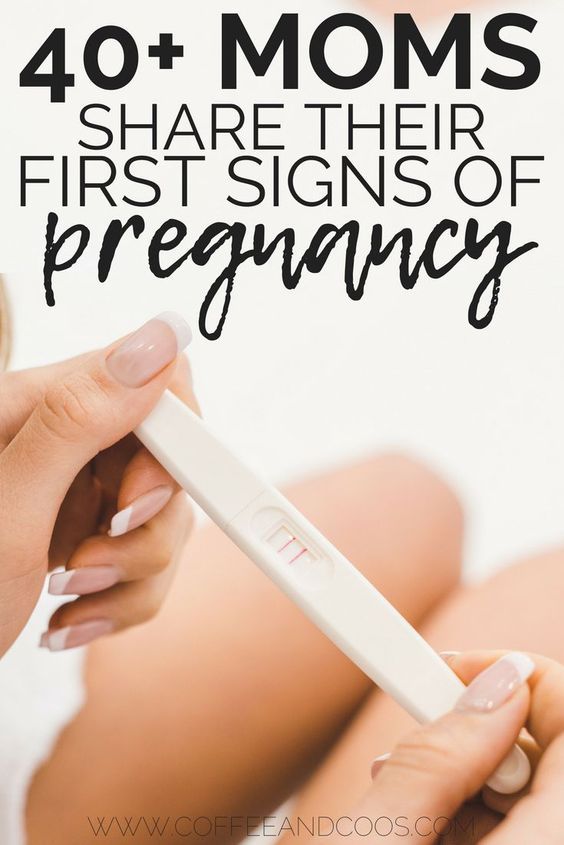
Genetic pathologies of the fetus: how they look on ultrasound and pathology prognosis
Pathology
Method of identification and terms
what is the nature of the pathology
Character traits
spiritual and psychological growth
Down's syndrome
Chorionic villus biopsy, enlarged collar space of the fetus, underdevelopment of bones.
Cyst, fetal tachycardia
Three of the 21st pair of chromosomes are presented as linked instead of raid 2.
Children of all races have obliterated Mongoloid eyes, underdeveloped nose, shallow-set eyes, semicircular flat ears, short skull, flat neck, short nose
Mental retardation, poor vocabulary, inability to think abstractly, lack of concentration, hyperactivity
Patau syndrome
Ultrasound at 12 weeks showed a small head, hemispheric asymmetry, extra fingers.
I have trisomy 13.
Babies are born with microcephaly (an underdeveloped brain), low forehead, slanted eye sockets, cracked lips and palate, corneal noise, heart problems, kidney problems, and abnormally enlarged genitals.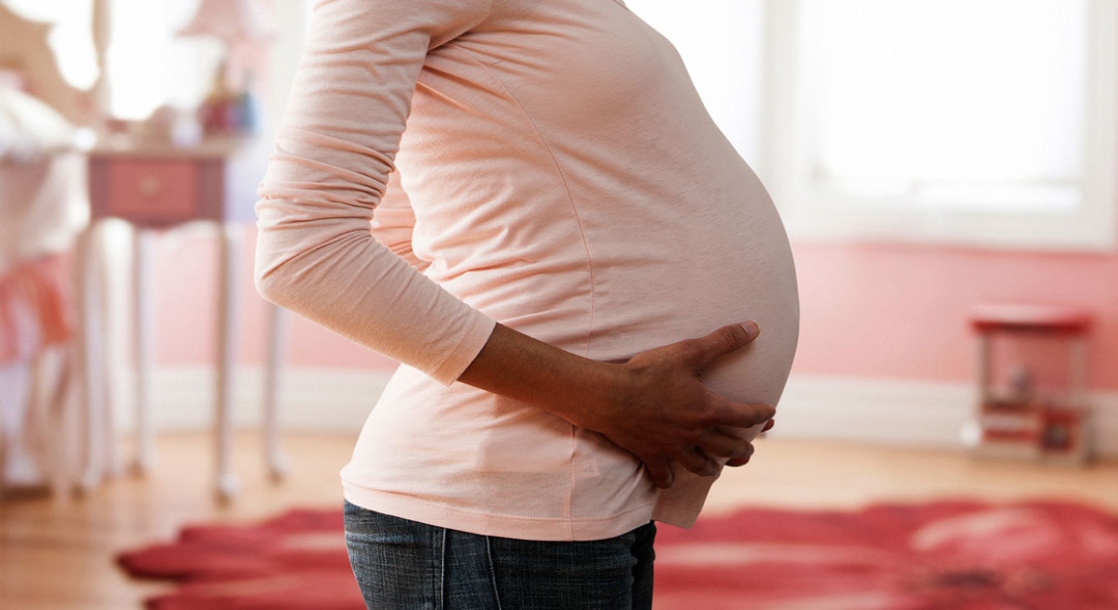
Hakuchu
Edwards syndrome
Corion biopsy, an intrauterine device that collects cord blood Microcephaly can be confirmed by ultrasound
I have trisomy 18.
Most females (3/4) are born, while male fetuses die in the womb. Low forehead, small mouth, underdeveloped eyes, cleft lip and palate, narrow ear canal, congenital ridges, clubfoot, severe anomalies of the heart and gastrointestinal tract, underdeveloped brain.
Children suffer from mutism (organic damage to the brain), mental retardation, disability, idiosyncrasy (lack of speech and mental activity).
Shereshevsky-Turner syndrome
X - bone structure of the fetus, myocardial MRI
Anomalies found on the X chromosome
Often observed in girls. Short neck with folds, lag of the hands and feet, deafness. Knife in lower lip, low hairline, underdeveloped lower jaw. Growth in adulthood does not exceed 145 cm. Joint dysplasia. Abnormal development of teeth. sexually transmitted children (absence of follicles in the ovaries), underdeveloped mammary glands
talk, be careful. Intellectual abilities are not violated.
Intellectual abilities are not violated.
X-chromosome derived
Examination at 12 weeks of gestation, chorionic villus biopsy, amniocentesis. Voices worrying about collar girdle enlargement
3 or more X chromosomes instead of 2 X chromosomes.
More common in girls and less common in boys. Characteristic of sexual infancy (lack of secondary sexual characteristics), tall stature, curvature of the spine, hyperpigmentation of the skin
Antisocial behavior, aggression and mental retardation in men.
Y-chromosome policy
Y-chromosome added instead of XY-chromosome
observed in boys. Height 186 cm, heavy lower jaw, curved melody, narrow shoulders, wide pelvis, shadow, fat belly
mental retardation, aggressiveness, emotional instability
Carnelia de Lange syndrome
Analysis of blood serum of pregnant women did not reveal plasma protein A (RARR) -A) and is usually very high.
If you have a mutation in the NIPBL or SMC1A gene
thin arched eyebrows, short skull, high palate, abnormally crossed teeth, underdeveloped limbs, marbled skin, congenital malformations of internal organs, developmental delay
Hakuchu
Smith syndrome - Lymmli
Ultrasound confirms fetal skull anomalies, no ribbons
If there is a mutation in the DHCR7 gene responsible for cholesterol production
Narrow forehead, eyelids, deformed skull, small nose, low ears, underdeveloped jaw, anomalies of the genital organs, toes
Hyperexcitability, Aggression, Decreased muscle tone, Sleep disturbance, Mental development, Autism
Pradel-Billy Syndrome
Incorrect position indicating low fetal mobility.
Chromosome 15 has no paternal part.
Obesity with slow growth, incoordination, muscle weakness, strabismus, excessive salivation, crooked teeth, infertility.
Intellectual retardation, word delay, lack of communication skills, weakness in hand athletic ability. Half of the patient is of average intelligence and can read.
By continuously attending classes, children can read, count and study people. Be sure to take measures against overeating
Angelman syndrome
After 12 weeks there will be delays in fetal growth and mass development
When the UBE3A gene on chromosome 15 is deficient or mutated
unnecessary movements, large mouths, drooping tongues, walking with perfectly straight legs.
"Happy Doll Syndrome": children often laugh. Mental retardation, hyperactivity, coordination disorder of movement and hands are severely shaken.
Langelgideon Syndrome
In 4D ultrasonography, jaw anomalies are noticeable
No. 8 Chromosome syndrome.
8 Chromosome syndrome.
Long pear nose, mandibular amon, very prominent ears, irregular limbs, spinal convexity
Mental retardation, difference in degree, mental retardation, lack of language skills persons
1 Chromosome 7 is affected causing normalization of brain beliefs. This is caused by aldehyde to the fetus when the mother abused alcohol
Differences (alcohol syndrome), heart disorders, kidneys, seizures
Slaps (normalization of brain pronation), underdeveloped brain, mental retardation
JORZIE VOLTAGE
Ultrasound tests can find malformations in various organs, especially in the heart (instructions).
Diseases of the immune system, 2 2nd chromosome position
Low formation of TIMS (undeveloped organs that are responsible for the production of immune cells), malformations of faces and skulls, heart disease. No subreothyroid gland for calcium and phosphorus exchange
Cortical content and cerebellar atrophy, mental retardation, motor skills and language difficulty
Treatment with immunity, Chims transplantation, calcium therapy. The child was unable to live for 10 years and dies as a result of immunodeficiency
The child was unable to live for 10 years and dies as a result of immunodeficiency
Williams Syndrome
Ultrasound appears in the development of the skeleton and elasticity of the joints.
7th inheritance disease caused by the absence of chains on chromosome
The synthesis of elastonic pigs is reduced, and the children have the characteristics of the "elf face" of swollen eyelids, low eyes, pointed chin, short nose and broad forehead.
Increased health, impulsivity, obsessive-social, emotional instability, restlessness, expressive way of speaking
Beckbita Widmann Syndrome
Unusually disproportionate limbs are seen in ultrasound tests, scales and kidney pathology.
Inheritance and lack of a chain on chromosomes
He is young and growing like a storm, has abnormally large internal organs and tends to have a tendency to cancerous tumors. Hernia of the umbilical cord, abnormally large tongue, microtosis (the brain is underdeveloped).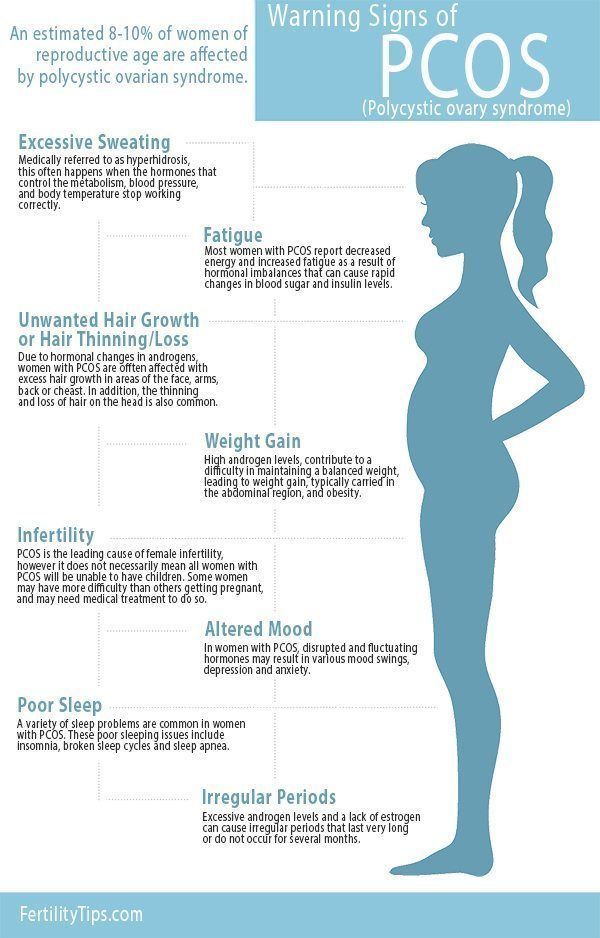
In some cases, emotional and mental development is not beyond the standard. Mental retardation can be declared
Toricilin Syndrome
Ultrasonography confirms remarkable asymmetry
Fifth chromosome gene mutation causes abnormal bone structure.
Children have almost no face, and natural ugliness stands out.
The development of the mental and emotions is perfectly normal.
preview
Causes of fetal abnormalities: what affects the birth of children with genetic abnormalities
The following factors that cause congenital abnormal children include:
- Genetic priority. A gene is information determined by parents. Identify landmarks such as height, eye color, and hair. Similarly, when both parents or one have the damaged gene, various controversies arise. Therefore, marriage with close relatives is prohibited. In the end, this increases the likelihood of transferring an embryo with a genetic pathology. If the gene combination is reversed, you are more likely to have healthy babies.

- Parental age groups include mothers over 35 and fathers 40 and over. With age, immunity decreases, chronic disease occurs, and the immune system of women does not notice the genetic sperm. If the pregnancy is established and the young woman refuses the lower embryo, the years will pass more peacefully.
- Mom is a bad habit. Nearly 90% of abnormal pregnancies occur with less water. In the case of smokers, the fetus is hypoxic, and the decomposition of aldehyde (alcohol) during early pregnancy leads to mutation and abnormalities. In the case of patients with an alcoholic, children are born with a 46% chance of genetic diseases. Alcohol can also "cut off" the father's gene chain.
- This is a contagious disease. In particular, diseases such as influenza, rubella and chicken are dangerous. Up to 18 weeks before the formed amniotic fluid is the most damaged fruit. In some cases, an abortion may be recommended.
- Take medication. For pregnant women, ordinary chamomile becomes poisonous.
 Any medicine requires a doctor's consultation.
Any medicine requires a doctor's consultation. - It kills mental shock nerve cells and always affects fetal development.
- If you get pregnant while you are relaxed in Thailand's poor ecosystem and climate change, you may have dangerous infectious diseases at the same time as pregnancy and slowly develop in your country, affecting your baby's health. Zoom in.
How to prevent fetal defects and where to get a fetal ultrasound in St. Petersburg
You can plan your pregnancy in advance to avoid most of the problems associated with childbirth and fetal pathology. After passing the scheduled test, both partners can pass tests that clearly indicate the possibility of gene abnormalities. Various tests are performed, such as tests for infectious diseases (altitude complex), which causes malformations in the child.
Be sure to have an ultrasound test for fetal science at Diana's clinic in Central Petersburg. We have introduced the latest Doppler ultrasound diagnostic device. Inspections are performed in 3D and 4D Thomas. The recorded disc is transferred.
Inspections are performed in 3D and 4D Thomas. The recorded disc is transferred.
Finally, menstruation is delayed. If you want a baby, there is a good chance that you will be pregnant this time. You can easily find out in detail with a pregnancy test. At the same time, watch yourself. You may have already noticed the change. Usually the body clearly shows that fertilization has occurred. Most of the symptoms are associated with an increase in hormone levels.
Of course, not all symptoms are pregnant. However, the more you notice a typical symptom, the higher the possibility. However, only a doctor can finally complete. "I'm pregnant ~ congratulations"
Uncertain early signs of pregnancy
The initial symptoms of pregnancy are more vague. In many cases, the first sign of pregnancy appears before menstrual delays. These may be early symptoms of pregnancy.
- Nausea / vomiting
- "connected" fatigue and malaise
- Vogenic appetite, abnormal food addiction
- Uncomfortable breasts and black nipples
- Kominka
- Abdominal Ca
- Bite and nail growth
- Change in skin condition
- Bult / Constipation
Nausea and vomiting
One of the most famous signs of pregnancy is that the heroine runs around quickly and suddenly worsens. She does not yet know that she still has a child, but everyone in the cinema already understands the clues.
She does not yet know that she still has a child, but everyone in the cinema already understands the clues.
Nausea is actually not that typical. Some women feel very sick and some women feel a little sick.
"Lead" fatigue and fatigue
No matter how the dawn is all night, are you tired during the day? In the afternoon he is called to the couch and your eyes start to close like magic? A great desire for dreams is one of the signs of pregnancy. If you have unusual tiredness or malaise, you may be pregnant.
Frequent urination
Even if you drink normally, you always want to go to the bathroom. It can also be the initial symptoms of pregnancy. When the embryo is implanted, a hormone called human chorionogonadotropin (HCG) is secreted and the number of toilets increases.
Increased food cravings and unusual eating habits
Is your body screaming for chocolate, or do you get up in the middle of the night and buy greasy potato chips at the gas station? Or is there another unusual food poisoning? Lottery! ? You may be pregnant. For example, there are many women who feel that the hot salsa sauce is dropped directly from the box or convinced by vegetarians and wants to bite into rich salami and the food tastes strange as the initial symptoms of pregnancy.
For example, there are many women who feel that the hot salsa sauce is dropped directly from the box or convinced by vegetarians and wants to bite into rich salami and the food tastes strange as the initial symptoms of pregnancy.
Sensitive breasts and darkened nipples
Breasts may also indicate initial signs of pregnancy. Be careful with the following symptoms: The chest is compressed and starts to escape as before. The tenderness and tension of the breasts begin to get stronger, the breasts are swollen, and when I touch them, they tremble. The areola often looks darker than usual. The opposite symptoms also occur when you have a hormonal imbalance or experience pregnancy.
Changes in smell and taste
I'm always worried that I can't stand the smell of detergent. Alternatively, she complains to her husband, "I've been swimming in Cologne recently." You know? In early pregnancy, sensitivity to smell usually increases. Some women have a strange metallic taste in their mouths. One of the early symptoms of pregnancy is that you suddenly hate alcohol and tobacco.
One of the early symptoms of pregnancy is that you suddenly hate alcohol and tobacco.
Abdominal cramps, slight bleeding and discharge
Constriction of the stomach where menstruation begins. I'm disappointed: "I wasn't good for my baby again!" Alternatively, you may notice some marks and highlights. However, menstruation does not come in day and day. Then these symptoms may be the initial symptoms of pregnancy. These symptoms are usually harmless and the fertilized eggs implant in the uterus. If you are safe, refrain from stretching and exercising. If you feel abnormal, consult your doctor.
Elevated basal body temperature
You can see if you are pregnant by measuring your basal body temperature regularly. If your body temperature on waking is higher than the morning 18 days later, you may be pregnant.
When do the early signs of pregnancy appear?
You cannot say exactly what the symptoms of pregnancy are. When signs of pregnancy appear or not, it depends on the individual woman. However, the first symptoms of pregnancy may be associated with the next few weeks.
However, the first symptoms of pregnancy may be associated with the next few weeks.
4th week: implantation pain, trace bleeding, breast tenderness.
5th and 6th weeks: depression, fatigue, hunger, nausea, vomiting
7th and 8th weeks: nausea, cardiovascular disorders, dizziness, hypotension, insomnia, frequent urination.
9th, 10th week: changes in the mammary glands, nausea, shortness of breath
11 weeks, 12 weeks: bloating, constipation
The three surest signs of pregnancy as a reliable way to tell you are still pregnant
1. 1.
This is the most reliable sign of pregnancy. Sometimes stress, fluctuations in hormones or organic diseases, but it is best to take a pregnancy test.
2. I suffer from nausea.
You may feel slightly nauseous a few days after the suggestion. Some people (illness) are only nauseous in the morning, while others often feel nauseous during the day. It is caused by the pregnancy hormone, human gonadotropin (HCG).
3. A positive reaction appeared in the preparation for a pregnancy test.
Congratulations. So what if you go to a gynecologist and start looking for an obstetrician for childbirth?
Remember: if you have any abnormalities, ask your doctor as soon as possible. If you have a positive pregnancy test, make a doctor's appointment.
"I didn't know..." -Gynecologists hear this phrase from young girls who come to the hospital for long-term checkups and abortions, and women who have given birth. But now it is not difficult to judge pregnancy. In order not to get into such an unpleasant situation, all women should know the signs of pregnancy, as shown in the multiplication table.
Why early diagnosis of pregnancy is needed
Pregnancy is an important time for all women. And the news that a little life is already growing inside will always want to find it as soon as possible, even if it brings true happiness to someone and brings panic and fear for someone.
Early diagnosis is valid.
- Please select. When continuing pregnancy, it is very important to pass all the tests on time and calculate the pathological risk that the fetus may experience. In the early stages, women must choose to endure or stop.
- Do no harm. Early pregnant fetus is very easily damaged. In many cases, pregnant women take hard drugs and continue to smoke because they do not know that a new life has already been born.
- Please don't squeeze. If you don't want to get pregnant, you need to have an abortion within 6 weeks as soon as possible. During this period, you do not need to have surgery. The gynecologist recommends finishing the preparation (medium preparation) or if there are contraindications.
When pregnancy shows itself: the first signs of pregnancy
In principle, this occurs 7 to 10 days after ovulation. Before this, the fertilized egg travels to the uterus through the fallopian tube and finally implants on the mucous membrane. This is where the embryo develops.
This is where the embryo develops.
Immediately after implantation, a special hormone, human gonadotropin (hCG), begins to be secreted. Found in a woman's body - the first sign of pregnancy. In addition to this, there is a delay in the menstrual cycle. This is exactly the case when a woman encourages a woman to go to a clinic to register and cancel a pregnancy, or a long-awaited appearance.
Should we expect typical early pregnancy symptoms? Of course not. Some pregnancy symptoms are related to other factors. For example, a missed period can be caused by a hormonal imbalance. Other signs of pregnancy include breast enlargement, changes in the shape of the uterus, hyperpigmentation that becomes more pronounced later, and sometimes a lack of brightness.
Methods for determining pregnancy
Even if there are no signs of pregnancy, assuming that she is pregnant, the first thing a self-respecting woman should do is go to the pharmacy and make an appointment for an examination or a gynecologist. Old-fashioned methods that have long been used in the era of high technology no longer make sense and are not always safe. So, let's analyze what methods of early detection of pregnancy currently exist and what is the percentage of their reliability.
Old-fashioned methods that have long been used in the era of high technology no longer make sense and are not always safe. So, let's analyze what methods of early detection of pregnancy currently exist and what is the percentage of their reliability.
Pregnancy test
It can now be purchased at any pharmacy and should be taken the very next day after a missed period.
The accuracy of rapid tests that determine pregnancy by the presence of the hormone hCG in the urine depends on its sensitivity. Therefore, if you want to be 95% sure of your answer, you need to purchase a test with a sensitivity of up to 10 mIU/ml.
Of course, this is expensive, but the purpose of this operation is to confirm or refute the initial suspicion of fetal development. It is also important to comply with certain conditions.
- Strictly observe the conditions specified in the instructions.
- Firstly, it is at this time that the level of the hCG hormone in the body is highest, and secondly, an intermediate time before urination (up to 5-6 hours) is recommended.

- If a second blurry line appears, repeat the test.
The advantage of this pregnancy test method is that it can be done at home without risking your health. Disadvantages: Often the results are erroneous if the test is performed incorrectly, if the woman has neoplasms, or if she takes drugs containing hormones.
This test cannot be used to detect an ectopic pregnancy. For these reasons, it is best to use a pregnancy test only to confirm your suspicions and then visit a clinic.
Basal temperature measurement: a thermometer in your butt
Another way to safely determine pregnancy at home is to measure body temperature. This method is called measuring basal body temperature. With the onset of pregnancy and an increase in the level of the hormone progesterone in the body, the body temperature also rises and never drops below 37 ° C. Rectal temperature of 37°C or higher after 3 days of delay is considered a direct sign of pregnancy.
To confirm pregnancy, you should measure your basal body temperature with a conventional mercury thermometer for at least a week after the first day of your missed period. Enter into the rectum immediately after waking up in the morning. So, you need to have a thermometer and a notebook to record the temperature at night, and be treated in the morning without getting out of bed.
Enter into the rectum immediately after waking up in the morning. So, you need to have a thermometer and a notebook to record the temperature at night, and be treated in the morning without getting out of bed.
Do not trust this diagnostic method. Rising temperatures occur for various reasons, but ignoring it can be harmful to health. For example, a temperature may remain when illnesses such as infectious diseases and tuberculosis are hidden. Experts believe that this method is even less reliable than the use of test drugs, so it is not recommended to take it as a criterion for assessing early pregnancy. If it is not in the countryside, it is suitable for pharmacies or gynecology nearby.
Therefore, no matter what the result of the diagnosis at home, at an early stage, only clinical examinations that study the composition of hormones in the blood can be obtained accurately.
Gynecological examination
This method is not associated with early diagnosis.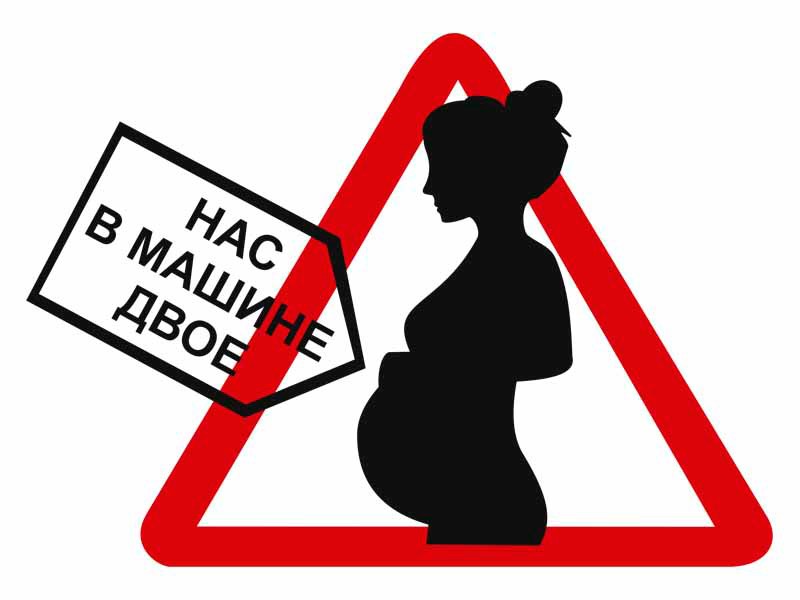 Gynecologists can judge pregnancy with a higher probability, but experienced professionals can judge at the 5th week.
Gynecologists can judge pregnancy with a higher probability, but experienced professionals can judge at the 5th week.
As the fetus grows, the female genitalia and reproductive organs have changed.
- As blood flow increases, the external organs, the walls of the vagina and the cervix become blue. Doctors judge this by visual examination.
- The structure, size and shape of the uterus changes, making it rounder and softer.
- Some pregnant women have a uterus that deviates forward, and some kind of comb-like combination appears on the surface (delivery).
To confirm the suspicion, the gynecologist always prescribes blood tests and ultrasound tests to examine the presence or absence of pregnancy hormones. These methods are the most reliable and can be determined with a probability of 98-99%.
Blood test to determine pregnancy
In the clinic, early diagnosis of pregnancy is performed by hormonal analysis of hCG (human chorion Donadotropin).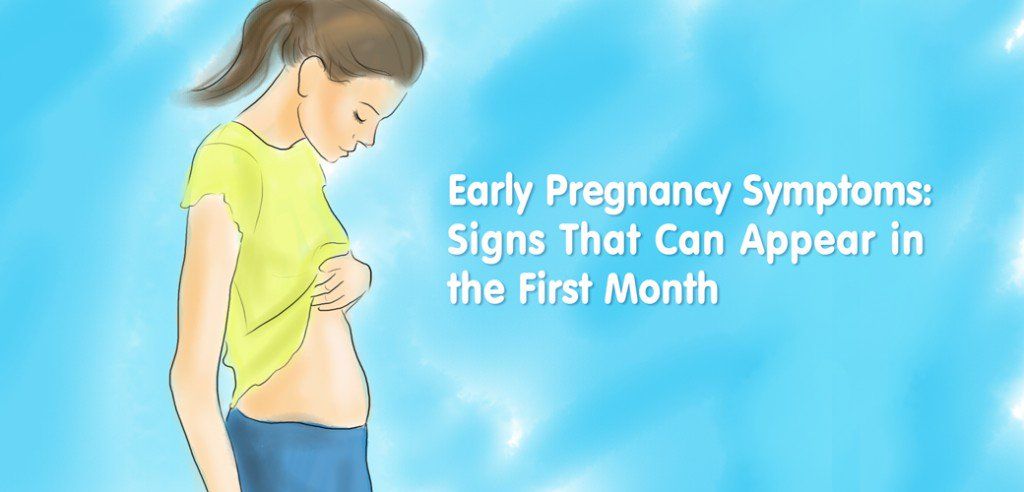 The value of this hormone allows you to determine the 7th day of pregnancy after conversion.
The value of this hormone allows you to determine the 7th day of pregnancy after conversion.
According to the HCG method that expresses the test. However, do not forget that the amount of hormones will increase in the urine, so pregnancy tests will be diagnosed for the first time after a missed period. Blood donation for the detection of HCG hormones is the most preferred way to judge pregnancy from the eighth day after treatment.
Chorion gonadotropin contained in the blood has two components: α and β. The content of beta particles affects pregnancy. The ratio has already increased significantly from one day to the implantation of a fertilized egg. And the next day after implantation, the value of the hormone doubles. The concentration of beta-a-particles gradually increases on the 1-3rd week of pregnancy and gradually decreases. From these changes, you can judge the age of the pregnancy.
In the results of the analysis of hCG, is this correct? For example, HCG at 1-2 weeks is 25-156 mol/ml, and at 3-4 weeks is 1110-315000 mol/ml. This allows gynecologists to monitor the progress of pregnancy and fetal growth, and to order additional tests if the values obtained from the analysis are significantly out of standard.
This allows gynecologists to monitor the progress of pregnancy and fetal growth, and to order additional tests if the values obtained from the analysis are significantly out of standard.
Abnormal pregnancy tests
To detect ectopic pregnancy, frozen pregnancy, multiple pregnancy and fetal diagnosis and fetal diagnosis and fetal diagnosis and fetal diagnosis.
The hCG blood test is very accurate. The concentration of hormones is determined by modern X-ray methods. This parameter is important for gynecologists because the level of hCG is out of the standard if you have a specific disease.
If available, an increase in blood β-HCG may be approved.
- Multiple pregnancy.
- Fetal growth anomaly (for example, Down's syndrome).
- Various tumors of the choir (nevus in the water, cancer of the villi).
- Fetal microrat tumor (testis or ovarian myroformedoma, seminoma corresponds to this).
- I have diabetes.
- Toxic poisoning.
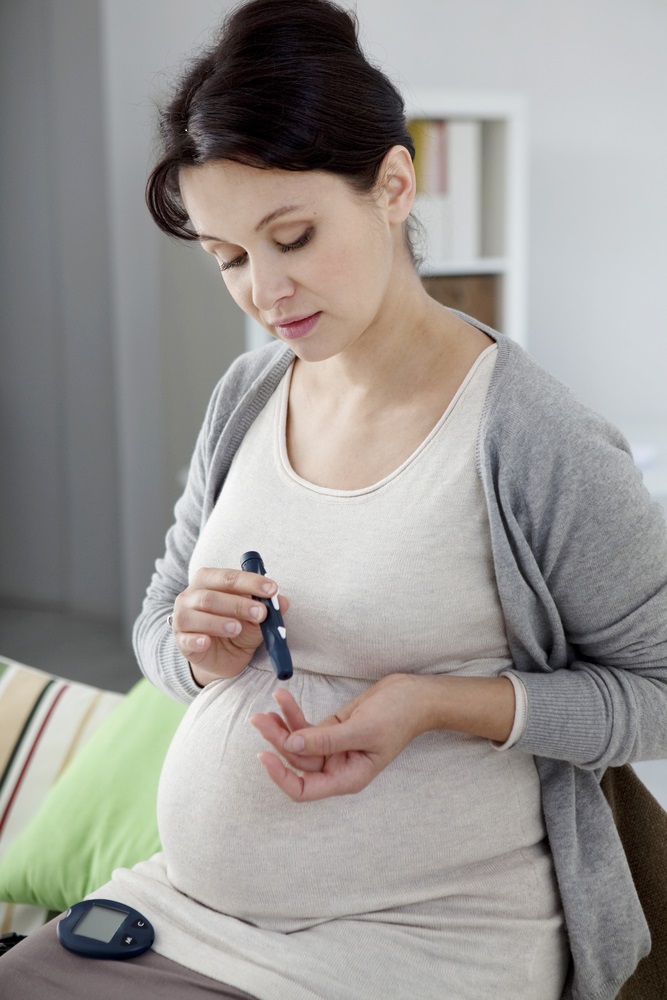
The amount of hormones decreases in the following cases.
- Jump pregnancy, ectopic pregnancy.
- Miscarriage discussion
- Threatened pregnancy; the threat of pregnancy; the threat of pregnancy; fetal growth abnormalities (such as Edwards syndrome).
Women can judge pregnancy, diagnose pregnancy from the content of hormones in it and judge before that period.
Examine the presence or absence of protein hormones to provide venous blood on the morning of the 3rd to 5th day after the menstrual period. Contact the lab clinic to be as accurate as possible.
There are also conditions that must be protected so that the results of the analysis are not changed.
Collect 5 hours after the last meal or on an empty stomach.
- Physicians performing the test must be informed of the medications they are taking in order to account for the substances included in the analysis.
- Physicians need to know the presence or absence of a patient's disease.

- It helps to eliminate factors in hormonal levels in the blood that can be caused by various causes such as diet and drug exposure. To ensure more, you need to repeat a few days later.
HCG hormones should be prescribed for women and men in health exams as hCG hormones can also indicate the occurrence of cystic tendencies. However, in this case, the level of hormones is lower than the typical feature of the development of pregnancy.
The pharmacy sells special test preparations for testing HCG in the blood at home, but this is of low sensitivity and cannot get the results obtained in the laboratory. Since the concentration of HCG in the urine is always lower than in the blood, the same applies to rapid testing of pregnancy drugs and does not necessarily show true results.
HCG Rapid Tests: Can You Trust?
Rapid s-tests are reliable, but please stay within a reasonable range. Various factors affect the impact of the diagnosis.
For example, the marker may change.
When kidney function decreases, urine chemistry changes and protein becomes saturated.
- A large amount of alcohol per day lowered the concentration of hormones.
- It may just be wrong to store and use the major itself.
- Therefore, it is best to consult a gynecologist in the laboratory to confirm or deny your own pregnancy.
If the blood test is positive, this is confirmed by an ultrasound diagnosis. The gynecologist usually conducts ultrasound tests from the fifth day of irregular menstruation, but, in principle, it seems that it is equivalent to the growth of the fetus for three weeks. Since not only normal pregnancies, but also ectopic and multiple pregnancies can be detected, the benefits of this method are not up for debate.
Ultrasound in early pregnancy
Ultrasound pregnancy tests are performed in the vaginal or abdominal cavity. A vaginal ultrasound is inserted into the woman's vagina while wearing a condom, which is considered more effective in this case. This allows specialists to check the contents of the uterus and check the position of the amniotic fluid eggs. Ultrasound tests are performed with an empty bladder and the patient lying on a couch.
This allows specialists to check the contents of the uterus and check the position of the amniotic fluid eggs. Ultrasound tests are performed with an empty bladder and the patient lying on a couch.
On the other hand, abdominal ultrasonography should drink 2-3 cups of pure water an hour before the test or refrain from urinating three hours ago. In this method, it is difficult for the specialist to find an early fetus because the specialist directs the probe along the woman's stomach. The subcutaneous tissue can interfere with the beams of ultrasonic waves that are supposed to pass through the abdominal wall.
Ultrasound examinations who appear to have knowledge of obstetrics and gynecology, and if they are not ultrasound experts specialized in this field, they cannot determine the facts of pregnancy at an early stage, therefore, in a specialized gynecological clinic. You must do it. In addition, attention must be paid to ultrasound diagnostics, and older models may have incorrect results.
In conclusion, it is important to note that blood tests and ultrasonography, which examine the presence of hCG, are important not only in determining whether they are pregnant, but also in monitoring the development of the fetus. Specify the period of pregnancy and the expected date of delivery, quickly noticed the condition and allows, if necessary, early cancellations and early cancellations.
Initial symptoms of pregnancy before delayed
Early signs of pregnancy before delay, early symptoms
Significant hormonal changes occur during pregnancy. This causes a number of symptoms. Some women experience pregnancy symptoms right away, while others may only have a few. About the first signs of early pregnancy and when exactly the first signs of pregnancy appear we tell in the article.
At what time do the first signs of pregnancy appear
The answer to the question when the first signs of pregnancy appear is quite ambiguous, because some women do not feel any signs at all during the first few weeks.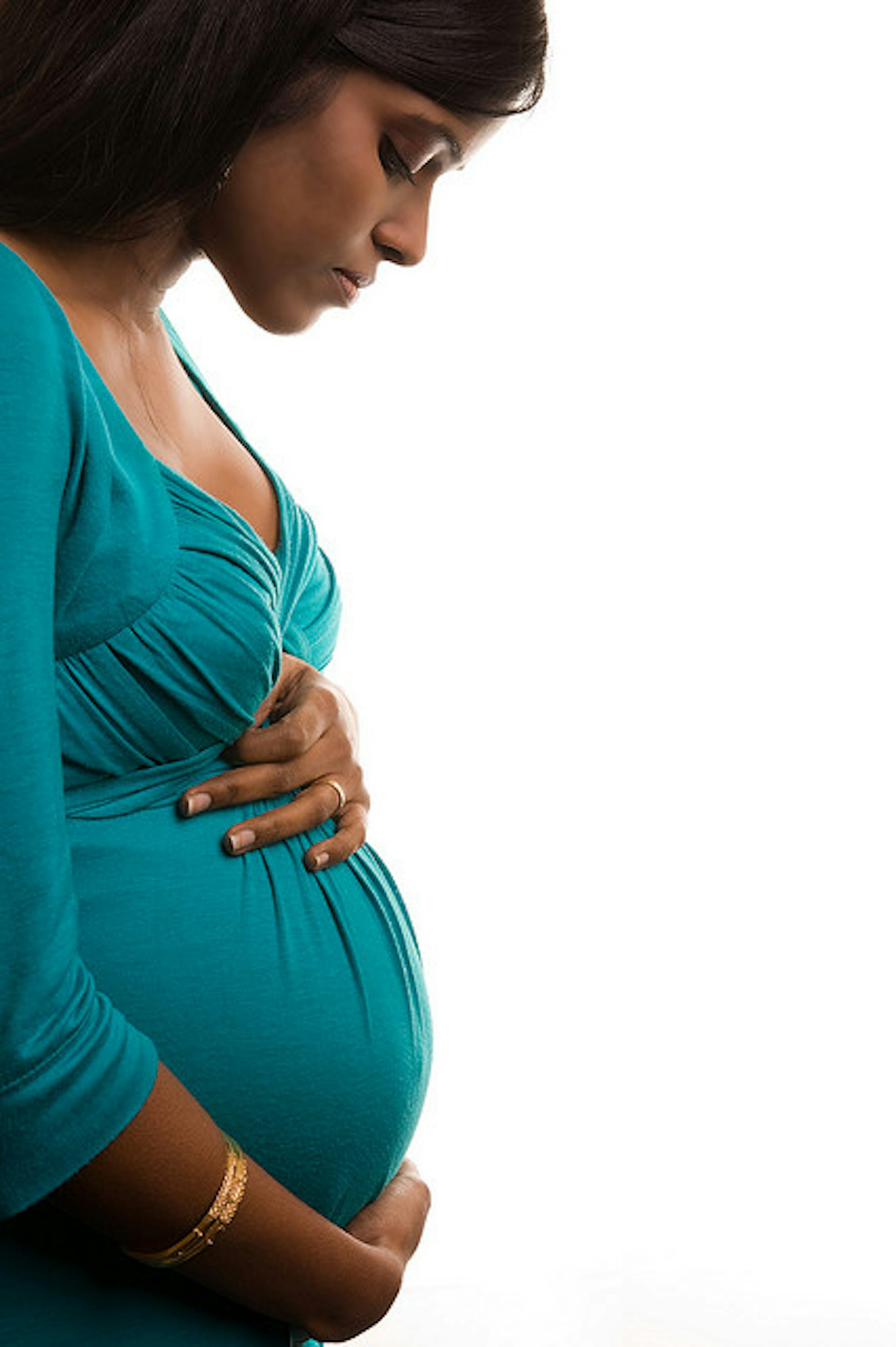 At what week do the first signs of pregnancy appear in others? When do the first signs of pregnancy appear after conception? Symptoms of very early pregnancy (such as breast tenderness) may appear before a missed period, as early as six to seven days after conception, while other early signs of pregnancy (such as spotting) may appear about a week after ovulation. We will tell you more about the first signs of pregnancy before menstruation and when the signs of pregnancy appear.
At what week do the first signs of pregnancy appear in others? When do the first signs of pregnancy appear after conception? Symptoms of very early pregnancy (such as breast tenderness) may appear before a missed period, as early as six to seven days after conception, while other early signs of pregnancy (such as spotting) may appear about a week after ovulation. We will tell you more about the first signs of pregnancy before menstruation and when the signs of pregnancy appear.
What are the earliest signs of pregnancy?
The first signs of pregnancy in the early stages:
- delayed menstruation - 29%;
- nausea - 25%;
- mood swings - from 14 to 23%;
- breast changes - 17%;
- pain in the lower abdomen - 15%;
- depression - 15%;
- fatigue, drowsiness - 13%
- decrease in immunity - 6%;
- the first signs of pregnancy - discharge or implantation bleeding - only 3%.
Physiological early signs of pregnancy
What are the earliest symptoms of pregnancy?
The most common physiological signs of pregnancy include:
- Tender and enlarged breasts.
 Signs of pregnancy in the first days after conception include breast changes (1-2 weeks after conception). The area around the nipples, called the areola, may also darken.
Signs of pregnancy in the first days after conception include breast changes (1-2 weeks after conception). The area around the nipples, called the areola, may also darken.
- Drowsiness and fatigue. Fatigue is also among the signs of pregnancy in the first days after conception. During early pregnancy, levels of the hormone progesterone rise dramatically, which can cause drowsiness.
- Nausea with vomiting. When do these signs of pregnancy appear? Morning sickness, which can appear at any time of the day or night, often appears between the second and eighth weeks after conception.
- Dizziness and fainting . This may be due to dilation of blood vessels, lowering blood pressure and blood sugar levels.
- Spasms. Some women experience symptoms of pregnancy in the early days, such as mild uterine cramps.

- Headaches and back pains. Many pregnant women complain of frequent headaches, while others experience back pain.
- Insomnia - another first sign of pregnancy before the test. Causes can include stress, physical discomfort, and hormonal changes.
- Change in taste preferences. Like most other symptoms of pregnancy, these eating habits can be attributed to hormonal changes.
- Temperature. Early signs of pregnancy include fever (37-37.5).
- Delayed menstruation. How long does it take for the first signs of pregnancy to appear? If you are of childbearing age and a week or more has passed without your expected period, you may be pregnant. However, this symptom can be misleading if you have an irregular menstrual cycle.
- Bloody discharge - the first signs of pregnancy .
 This bleeding, known as implantation bleeding, occurs when a fertilized egg attaches to the lining of the uterus, approximately 10 to 14 days after conception.
This bleeding, known as implantation bleeding, occurs when a fertilized egg attaches to the lining of the uterus, approximately 10 to 14 days after conception.
- Bloating, heartburn. Hormonal changes can cause problems with the stomach and esophagus - these are common signs of pregnancy at 2 weeks.
- Constipation . Hormonal changes cause the digestive system to slow down, which can lead to constipation (signs of pregnancy after a delay).
- Frequent urination. You may urinate more than usual, which is a common sign of pregnancy at 5 weeks. During pregnancy, the amount of blood in the body increases, causing the kidneys to process excess fluid that enters the bladder.
- Runny nose. The appearance of this symptom is associated with excessive production of the hormone estrogen.
- Exacerbation of chronic diseases.
 This is a sign of pregnancy after ovulation.
This is a sign of pregnancy after ovulation.
- Increased salivation. Also associated with hormonal changes.
- Sense of smell enhancement . Signs of pregnancy in the first two weeks may cause sensitivity to certain smells and the sense of taste may change.
Emotional first signs of pregnancy
The first signs of pregnancy before the delay (the earliest signs of pregnancy) include psycho-emotional symptoms.
- Mood swings.
- Irritability.
- Vulnerability, tearfulness.
- Capriciousness.
- Depression.
These are all emotional signs of early pregnancy that many women report. They describe feelings of heightened emotion or even bouts of crying, which are associated with rapid changes in hormone levels in the body. Also, signs of pregnancy at week 4 can make you feel PMS-style cranky. In addition, about 15% of women suffer from depression or anxiety during pregnancy. And after childbirth, these conditions suffer even more. In this case, it is better to seek help from a doctor.
And after childbirth, these conditions suffer even more. In this case, it is better to seek help from a doctor.
Do everything you can to improve your mood: get plenty of rest, eat well, get enough sleep, do things you love, and pamper yourself.
However, be aware that mood swings can be caused by a number of conditions other than pregnancy.
Influence of early pregnancy on daily routine
Early signs of pregnancy, mainly those that bring discomfort, may cause a change in daily routine. Here are some tips on what you can do with some of them:
- In case of toxicosis, avoid too hot or too cold food - this provokes an attack of vomiting. Eat often - at least 5-6 times a day, but in small portions.
- For nausea or vomiting, try ginger, chamomile, or vitamin B6.
- Drink plenty of water, in small sips between meals, to replenish lost fluids. Teas, juices, fruit drinks are also suitable.
- For back pain, wear shoes or shoe insoles designed for pregnant women and avoid high heels.
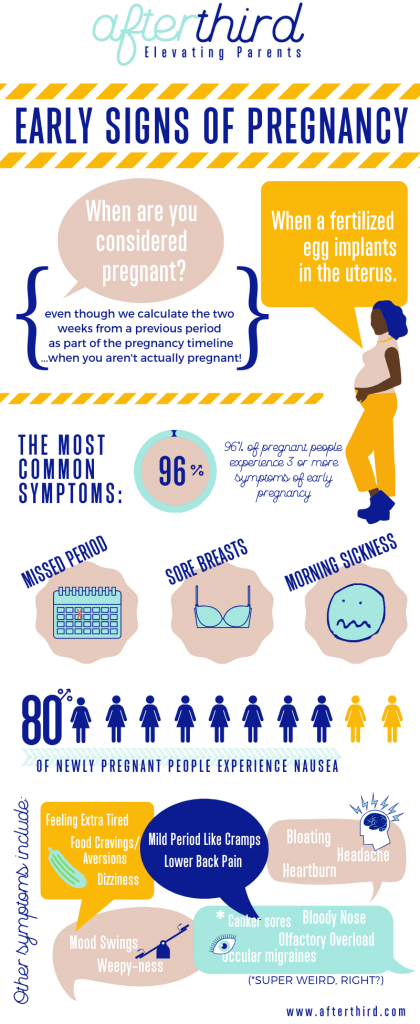 Sleep on a firm mattress.
Sleep on a firm mattress. - For chest discomfort, wear a special bra that supports enlarged breasts.
- For constipation, eat more fiber-rich foods such as wheat bran and fresh vegetables and fruits.
- If you suffer from headaches and mood swings, try stress reduction techniques such as yoga or meditation.
- Be outdoors more often, at least half an hour a day. This helps to reduce the symptoms of toxicosis, calm the nervous system.
- Maintain your daily physical activity for as long as you feel comfortable doing certain activities.
- Eat a balanced diet with enough proteins, fats and carbohydrates.
Important! All these tips are advisory in nature, be sure to consult your doctor if you encounter discomfort.
What to do if you find early signs of pregnancy
To make sure the signs of pregnancy are accurate, you can use the following methods to diagnose early pregnancy:
- Donate blood for hCG.
